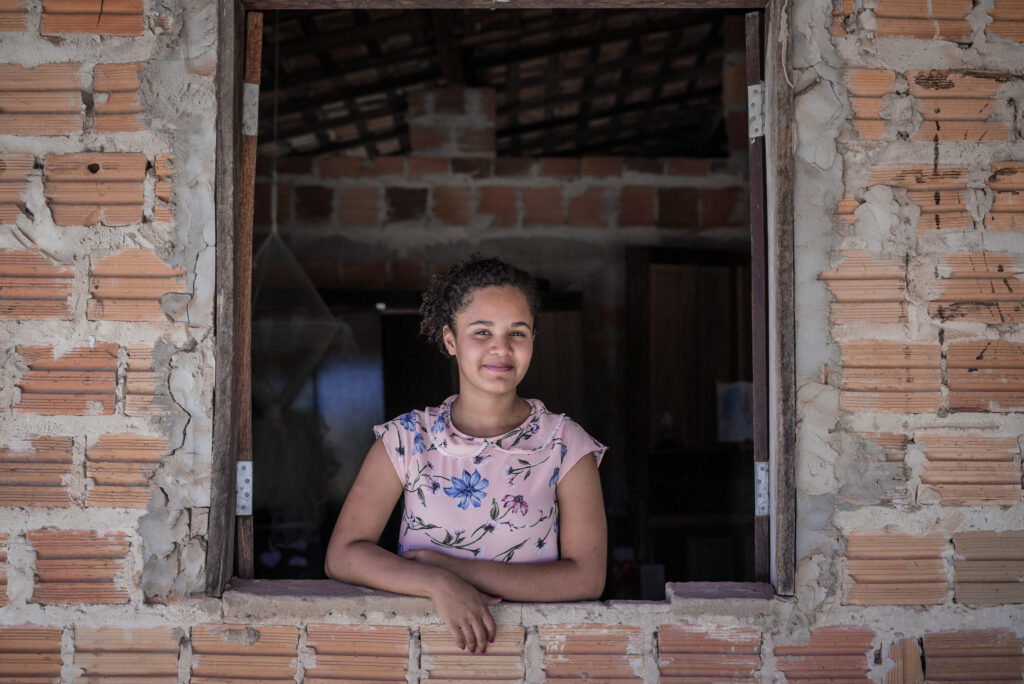Last year, at a gala charity dinner in São Paulo, Brazil, all eyes were on 16-year-old Sanmya. As the first girl in her Afro-Brazilian community to attend university, she took to the stage to tell 150 people the story of her inspiring, improbable journey.
Sanmya was born in Codó, a countryside community where securing water was a daily source of stress and struggle. The close-knit community of 120 families relied on cacimbas for their water supply. The word means “wells” in English, but Codó’s cacimba was more like a hole in the ground. The water from it wasn’t safe to drink, nor was it plentiful enough to meet the community’s daily needs.

From an early age, Sanmya had several responsibilities, including a long daily walk to the river to get clean water. She and her friends would then trek several kilometres to school and back home – where more chores awaited. It made for a long, exhausting day. When a young person in Codó gave up on school, it was easy to understand why.
But Sanmya knew that for her reality to change, she had to at least finish high school – no matter what.
The seeds of her determination were planted at age five, when she became a part of Plan International’s sponsorship program. In addition to being supported in her wish to stay in school, Sanmya was invited to participate in Rio+20 (a United Nations sustainability conference), the Girls Take Over movement and the women’s soccer project. Along the way, she exchanged letters with her sponsor in Germany.
“In that correspondence, I always found motivation to develop myself, to dream, to contribute and to help the community more and more,” recalls Sanmya, who chose journalism as her major in university.
Although she now lives and studies in the state of Piauí, Sanmya sits on the management committee of the Água, Saúde e Vida (Water, Health and Life) project, a program that tackles quality-of-life issues in Codó such as water supply, hygiene, education and violence prevention.
“I hope to be able to apply everything I learn in school to help my community,” she explained in her speech. “I fight for girls to have a better life – one in which they are free from gender-based violence and can achieve more.”
While her words are optimistic, Sanmya is candid about the mountain she faces ahead: “I carry the responsibility of being an example to my community, inspiring girls to believe that there is a possibility of opening a new path. I have a long way before me.”
Plan International Brazil has been partnering with communities like Codó since 2003, impacting people one family at a time through initiatives dedicated to education, gender equality and improving access to clean water. Education-focused initiatives, sponsorship programs and violence-prevention workshops are keeping more children in school as well as enabling them to access enriching skills, opportunities and life experiences.
Through the work of the Água, Saúde e Vida project, Codó now enjoys and maintains a safe water supply and thriving school and community gardens. It all adds up to less stress and more certainty for this small but resilient community, where girls like Sanmya are getting ready to blaze a trail.
In Brazil: